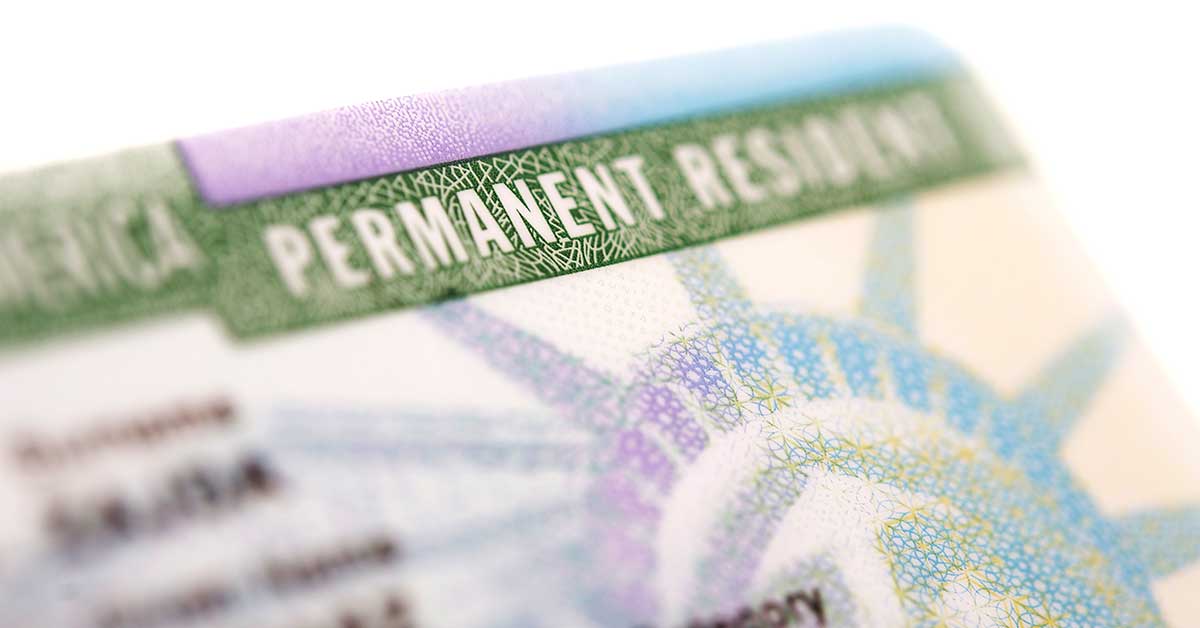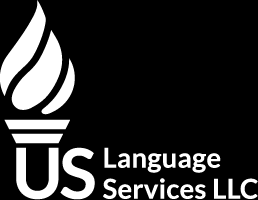How Can I Get a Green Card?

A Green Card is officially called a “Permanent Residence Card”. A green card allows non-U.S. citizens to live permanently in the United States. Green cards are usually valid for 10 years. After you obtain a green card, you can lawfully work and live anywhere in the United States. Having a green card is the first step to applying for U.S. citizenship. You must have a green card for 3 or 5 years depending on your situation, before applying for citizenship.The United States awards around 1 million green cards a year. Green cards are mostly given to two groups of people:
- Relatives of U.S. citizens and relatives of green card holders.
- Foreigners who are seeking employment in the U.S.
In this guide we will cover these questions:
- How Long Does It Take to Get a Green Card?
- What is The Cost of a Green Card?
- What are the Different Kinds of Green Cards?
- What are Family Based Green Cards?
- What are Green Cards Through Employment?
- What are Green Cards for Special Immigrants?
- What are Green Cards for Refugees and Asylees?
- What are Green Cards for Human Trafficking Victims?
- What are Green Cards for Crime Victims?
- What are Green Cards for Victims of Abuse?
- What are Green Cards Through the Diversity Lottery?
- What are Green Cards Through Registry?
- Are There Other Categories of Green Cards?
- Where Can I Get A Certified Translation?
How Long Does It Take to Get a Green Card?
There are two different ways to apply for a green card:
Adjustment of Status means applying from inside the U.S.
- For immediate family members and spouses of U.S. Citizens, applications average from 7-11 months . Immediate relatives include children, parents and sometimes siblings.
- For family members and spouses of U.S. green card holders the wait can sometimes be longer. For employment-based applications, the wait time varies.
Consular Processing means applying from another country.
- Applications (Form I-130) are faster if you are applying from another country. For immediate family members and spouses of U.S. Citizens, processing times average between 6-10 months.
The average time for applications to be processed is calculated in months by the USCIS.
What is The Cost of a Green Card?
In addition to the forms that will be mentioned below, you may need to submit a certified translation of any documents that are not in English. Depending on the type of Green Card you’re applying for, these documents may include:
You can order a certified translation of these documents from our online store:
Order Your Certified Translation
The cost for a green card is different if you’re applying from inside the United States, or applying from another country. The total cost will be the combination of different forms and applications. The cost of the forms listed below does not include the cost of a medical examination, which varies.
Adjustment of Status
The total cost is $1,760 to apply for a family based green card from within the U.S. This amount includes the combined price of these forms:
- I-130: $535
- I-485: $1,140
- Biometrics Fee: $85
Consular processing
The total cost is $1,200 to apply for a family based green card from outside the U.S. This amount includes the combined price of these forms:
- I-130: $535
- I-864: $120
- State Department Processing: $325
- USCIS Immigrant Fee: $220
If you are applying for a different type of green card, the USCIS website has specific information for each form.
What are the Different Kinds of Green Cards?
Here are the types of green cards that make sense for most people:
- Family Based Green Cards
- Green Cards Through Employment
- Green Cards for Special Immigrants
- Green Cards for Refugees and Asylees
- Green Cards for Human Trafficking Victims
- Green Cards for Crime Victims
- Green Cards for Victims of Abuse
- Green Cards Through the Diversity Lottery
- Green Cards Through Registry
- Other Categories of Green Cards
Below, there is an explanation of each category.
What are Family Based Green Cards?
Close relatives of U.S. citizens, or current green card holders, should apply for this type of green card. These are the different types of relatives that may be eligible:
- Immediate relatives include: Spouses. Unmarried children under the age of 21. Parents of U.S. citizens who are older than 21.
- Other relatives include: Unmarried children of U.S. citizens at least 21 years old. Married children of U.S. citizens. Siblings of U.S. Citizens at least 21 years old. Spouses of green card holders. Unmarried children of green card holders.
- Relationships through fiancés include: Fiancés of U.S. citizens. Children of fiancés of U.S. citizens.
- Widowers of U.S. citizens include: Anyone married to a U.S. citizen at the time they died.
- Abused family members include: Spouses of U.S. citizens, or green card holders. Children of U.S. citizens or green card holders, under the age of 21. Parents of U.S. citizens.
Some family relationships do not make a person eligible to apply for a green card. Those relationships are aunts, uncles, cousins, nieces, nephews, in-laws or grandparents.
What are Green Cards Through Employment?
There are three different categories of employment based green cards. Those are immigrant workers, physicians, and immigrant investors.
Immigrant Workers are divided into three separate categories. These categories are listed in order of preference:
- First preference (EB-1) immigrant workers include people with extraordinary abilities in the sciences, arts, education, or athletics. This also includes outstanding professors and researchers. Finally, this includes multinational managers or executives if they meet certain criteria.
- Second preference (EB-2) immigrant workers include professionals with advanced degrees and people with extraordinary abilities in the sciences, arts or business. This also includes people seeking a national interest waiver.
- Third preference (EB-3) immigrant workers include skilled workers with at least 2 years of experience, professionals with a U.S. bachelor’s degree or the foreign equivalent working in that field, and unskilled workers with less than 2 years of experience.
Physicians who agree to work full-time in underserved areas for a specific amount of time, and meet other eligibility requirements.
Immigrant Investors have to invest $500,000 in a specific employment area, or $1 million in a new commercial enterprise in the U.S. This investment has to create full-time positions for at least 10 people who also qualify.
What are Green Cards for Special Immigrants?
There are five different categories for special immigrants. These categories are religious workers, special immigrant juveniles, Afghanistan or Iraq nationals, international broadcasters and employees of an international organization or NATO.
Religious Workers are members of a religious denomination coming to work in the U.S. for a nonprofit organization.
Special Immigrant Juveniles are children who need the protection of the juvenile court because they were abused, abandoned or neglected by a parent.
Afghanistan or Iraq nationals fall into three categories:
- Afghan or Iraqi translators or interpreters for the U.S. government.
- Iraqis who served the U.S. government and were present in Iraq beginning on March 20, 2003, or after that date for at least one year.
- Afghans that were employed by the U.S. government or the International Security Assistance Force (ISAF).
International Broadcasters potentially include many different media professionals who are coming to the U.S. to work for the USAGM.
International Organization Employees include retired or current employees of NATO and some other international organizations that meet eligibility requirements. This type of green card may also include family members of these employees.
What are Green Cards for Refugees and Asylees?
These two terms are related but different. Asylees and refugees are people who have left their home country because they have been persecuted or they have a reasonable fear of being persecuted. Asylees and refugees are unwilling or unable to return to their home country because of this fear. Persecution can be based on race, religion, nationality, membership in a particular social group, or political opinion.
Refugees qualify as people who have already left their home country but are not yet in the United States. A person must be outside of the U.S. to be considered a refugee. If they are then admitted into the U.S. they qualify as “refugees”. After a refugee has been in the U.S. for one year, they are required by law to apply for a green card.
Asylees are people who are already inside the U.S. but don’t want to return to their country due to fear of persecution. Asylees must be officially granted asylum. This means, they are permitted to stay in the U.S. for protection, and will not be deported. Asylees can apply for a green card after one year of being granted asylum.
What are Green Cards for Human Trafficking Victims?
Victims of human trafficking include victims of sex trafficking and labor trafficking. If a victim of human trafficking lives in the U.S. they can apply for T Nonimmigrant status. This is also called a T Visa. The T Visa lasts for 4 years and can sometimes be extended. To be given a T Visa the victim must help law enforcement investigate and prosecute acts of human trafficking. The victim must also demonstrate good moral character while they are in the U.S.
A victim of human trafficking with a T Visa can apply for a green card after one of these two periods of time:
- Being physically present in the U.S. for 3 years after receiving a T Visa.
- Being physically present in the U.S. for the entire duration of the investigation.
If the investigation lasts less than 3 years, the victim can apply for a green card when it is finished.
There are other eligibility requirements victims must meet. They need to prove that if they were removed from the U.S., they would suffer hardship. Hardship is defined as unusual or severe harm. The victim has to have been under the age of 18 at the time of their trafficking.
Sometimes, family members of human trafficking victims may also be eligible for a green card if they meet all the eligibility criteria.
What are Green Cards for Crime Victims?
Victims of certain crimes who have “suffered mental or physical abuse” and live in the U.S. can apply for U Nonimmigrant status. This is also called a U Visa. The United States grants U nonimmigrant status to crime victims so that they can investigate and prosecute criminal activity. The crime victim must help law enforcement in this investigation. The crime must have happened in the U.S., or violated U.S. laws.
For a crime victim with a U Visa to apply for a green card they must meet these requirements:
- Crime victims must have U nonimmigrant status for 3 years.
- Crime victims must be physically present in the U.S. for 3 years before they can apply for a green card.
- Crime victims have to stay in the U.S. while their green card application is being processed.
Sometimes, family members of crime trafficking victims may also be eligible for a green card if they meet all the eligibility criteria.
What are Green Cards for Victims of Abuse?
This green card was created for people who have suffered “battery or extreme cruelty” and are related to a U.S. citizen or green card holder. This domestic violence has to be committed against the victim, by a person who is the victim’s:
- Spouse or former spouse that is a U.S. citizen.
- Parent that is a U.S. citizen (if you are unmarried and under 21 years old).
- Son or daughter that is a U.S. citizen.
- Spouse or former spouse that is a green card holder.
- Parent that is a green card holder.
This type of green card provides protection to victims of abuse under the Violence Against Women Act (VAWA), but it is not only meant for women. It protects anyone in the relationships mentioned above. Under the VAWA, the victim’s relative will not be notified that they are applying for a green card. The victim does not need the consent of their relative to apply. This is to keep the victim safe.
What are Green Cards Through the Diversity Lottery?
The Diversity Immigrant Visa Program is also known as the DV program. This program makes 50,000 visas available per year. These visas are available to people from countries whose citizens don’t immigrate to the U.S. frequently. These immigrants must be from specific countries in Africa, Asia, Europe, The Bahamas, Oceania, Central America, South America and the Caribbean. A complete list of countries is available to view. Each country is only allowed to be given 7% of the 50,000 visas that are available each year.
These visas are given by the U.S. State Department and must be submitted online. These visas are almost always given to people who live outside of the U.S. Usually if you are granted a visa through the DV program you will immigrate through consular processing.
Sometimes, there are lottery winners who reside in the U.S. at the time when they win the lottery. In this case, they would immigrate through adjustment of status.
What are Green Cards Through Registry?
Green Cards through registry allow some people who have lived in the U.S. since January, 1, 1972 or before, to apply for a green card. This may even be true if that person is living in the U.S. unlawfully.
To be eligible for a green card through registry, a person must prove they:
- Arrived in the U.S. before January 1st, 1972.
- Have never left the U.S. since the day they arrived.
- Are a person of good moral character.
- Are eligible to become a citizen through naturalization.
- Are not deportable from the U.S. because of crimes they’ve committed.
- Are not an inadmissible alien for various possible reasons. Being “inadmissible” simply means you cannot apply for a green card.
Are There Other Categories of Green Cards?
There are several other categories of green cards that are more specific and were not discussed above. These include, but are not limited to these categories:
- Liberian Refugee Immigration Fairness (LRIF)
- Cuban Adjustment Act
- Dependent status under the HRIFA
- Lautenberg parolee
- Indochinese Parole Adjustment Act of 2000
- American Indian born in Canada
- Person born in the United States to a foreign diplomat
- Section 13 (diplomat)
Where Can I Get A Certified Translation?
The documents and forms mentioned above may not be a complete list. You might also need to submit a certified translation of some documents that are not in English. Different types of green cards require different documents. Those could include:
You can order a certified translation of these documents from our online store:
Order Your Certified Translation
U.S. Language Services is not a law firm; its content should not be taken as legal advice. For specific legal concerns, please consult a licensed attorney. Similarly, financial information on our site is for informational purposes only, not financial advice. Consult a certified financial advisor or tax professional for advice tailored to your situation.
By accessing U.S. Language Services, you acknowledge that it does not provide legal or financial advice. You agree not to rely on its content as such. U.S. Language Services and its contributors bear no liability for any inaccuracies, losses, or damages resulting from the use of information on our site.
Guaranteed Acceptance
All our certified to English translations are accepted by the USCIS. Our translations follow the guidelines established by the USCIS and are also accepted by educational institutions.
Most Requested Documents
FAQs
You can order most translations 24 hours a day, 7 days a week through our online store. For large projects (more than 20,000 words or 50 pages), please request a quote.



